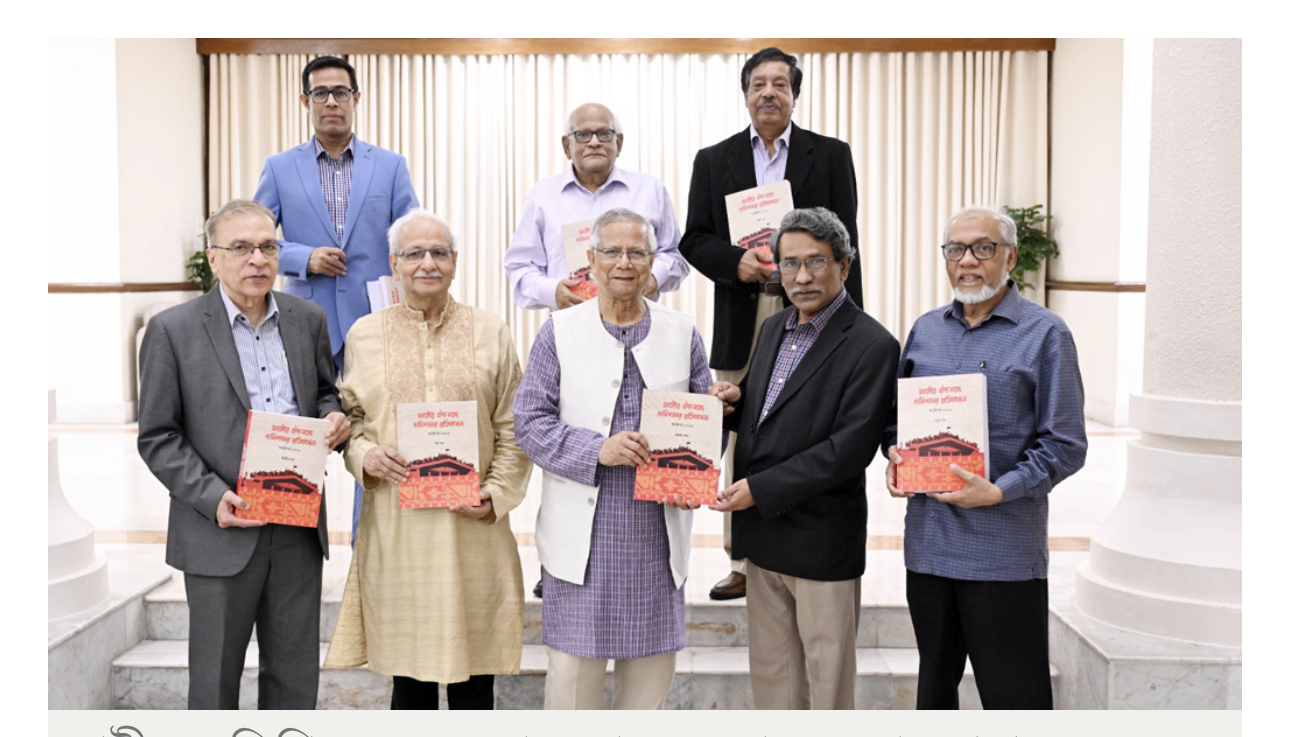Political Divisions Over Referendum and July Charter Implementation Spark Public Anxiety in Bangladesh
Fourteen months after the bloody July Uprising, the public’s dream of building a new nation—based on reforms, political reconciliation, and democratic stability under the interim government led by Nobel Laureate Dr. Muhammad Yunus—is facing severe challenges. Instead of prioritizing public expectations, political parties are entrenched in disputes over the implementation of the July Charter and the mechanism for a referendum, causing widespread frustration and anxiety among citizens.
Many citizens feel that the rigid, uncompromising positions taken by political parties are undermining genuine democratic values. Others suggest this is the ideal time for parties to reconnect with the people and rebuild trust. Analysts agree that consensus is essential to end the crisis in the interest of the nation.
Nure Azam, a service holder, reflected the public sentiment: “When the country’s law and order and overall situation will return to normal largely depends on the election. But with each party adopting an unyielding stance, the election is becoming uncertain. This disagreement, even after signing the July Charter, is confusing and frustrating the general public.”
Mahdiab Hossain Dihan, a Dhaka University student, lamented the current reality: “It is undeniable that there is now uncertainty over realizing the new Bangladesh dreamed of by students and the public through the uprising. Our aspirations were for good governance, the re-establishment of democracy, and accountability. But the reality is that we are going through political division, chaos, economic instability, violence, and security crises.”
The Battle Over the Referendum and Implementation Order
Political activity has surged nationwide ahead of the general election, but questions remain over the extent to which public interest is central to this activity. While parties are busy holding rallies and processions to solidify their positions, neither side has clearly articulated a future political roadmap.
The July Charter process has been marred by disagreements from the start. Although most participating parties eventually signed the finalized Charter, the conflict has shifted to the implementation order and the referendum timeline:
• Jamaat and Allies: They are demanding a referendum on the July Charter this November and the immediate issuance of the Charter’s implementation order. Mia Golam Parwar, Jamaat’s Secretary General, stated yesterday (Friday) that the national election in February must be preceded by a referendum in November through the implementation of the July Charter.
• National Citizens’ Party (NCP): While not demanding a November timeline, the NCP supports a referendum before the national election and insists that the Charter be implemented by the Chief Advisor’s order.
• BNP: The party opposes the interim government’s authority to issue an implementation order and favors holding the referendum on the same day as the national election. The BNP has also voiced strong objections to certain recommendations made by the National Consensus Commission regarding implementation.
The situation has deteriorated so much that BNP Secretary General Mirza Fakhrul Islam Alamgir publicly declared yesterday that the Interim Government and the National Consensus Commission have “betrayed the country and the people” and “deceived the public.”
Government sources, however, indicate that the majority of the Advisory Council members favor holding the national election and the referendum on the same day and that the government will issue the implementation order based on the Commission’s proposed recommendations.
Expert Analysis: A Crisis of Consensus
Dr. Al Masud Hasanuzzaman, Professor of Government and Politics at Jahangirnagar University, warns that the disagreements are fueling public anxiety.
Dr. Hasanuzzaman stated: “This is creating frustration among the people because there is apprehension that such disagreements might disrupt the holding of the election. People are hoping for a fair election, but they are questioning how a fair election is possible amidst such dissension. This is a symptom of political crisis.”
He suggested that parties must reach a point of unity to avoid a political crisis, emphasizing that parties must be willing to compromise in the interest of the country.
M. Humayun Kabir, President of the Bangladesh Enterprise Institute (BEI) and former Ambassador to the US, viewed the situation as part of a political evolution:
“Post-July, Bangladesh is going through a political evolution. There might be some tension here. But even amid this tension, I believe everyone agrees on one thing: there must be a fair election where everyone can participate. There is also consensus on the July Charter. The disagreement is only over the path to implementing the Charter. I believe the window for discussion is not yet closed. If the government and political parties can agree on a method acceptable to all, I believe we can overcome this temporary tension and division.”
Critique of the Consensus Commission
Shirin Parvin Huq, a human rights activist and head of the Women’s Affairs Reform Commission, laid the blame for the lack of unity on the Consensus Commission itself.
Huq argued: “The primary responsibilities of the interim government were justice, reform, and the election. We saw the Consensus Commission formed, but there is division there too. The recommendations of five reform commissions were not even considered. There are questions about the sincerity of the leadership of this Commission, and women were completely ignored.”
Huq stressed that the election is the only way forward. She believes it is unrealistic to expect parties to agree on everything due to their differing ideologies and demands. However, she concluded, the public wants a fair and swift election, and the government should focus on how to ensure this happens in the shortest possible time.




